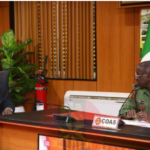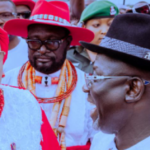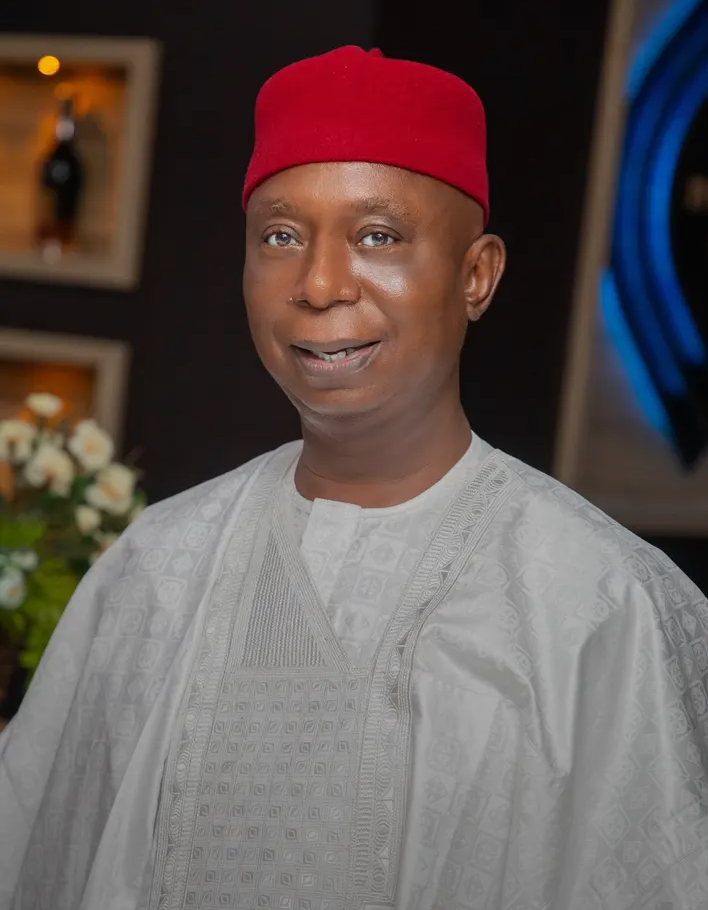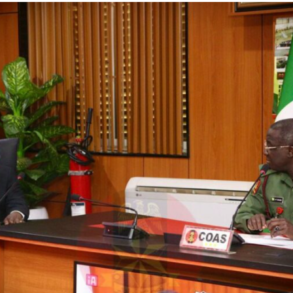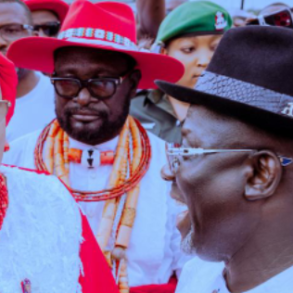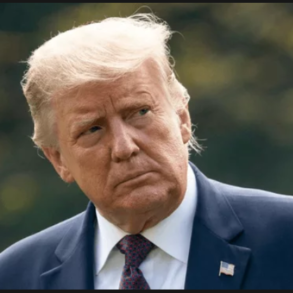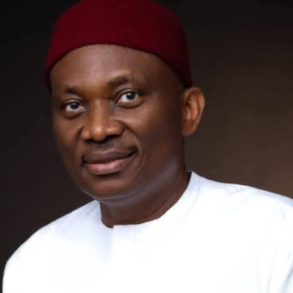The growing calls for the creation of Anioma State have reached a decisive moment, placing a great burden of political strategy, inclusivity, and constitutional adherence on the shoulders of Senator Ned Nwoko, the Senator representing Delta North in the National Assembly. While the aspiration for Anioma State has remained a consistent part of Delta North’s political discourse for decades, recent developments surrounding the push for state creation have raised concern among critical stakeholders who are insisting on proper consultation and due process as enshrined in the 1999 Constitution of the Federal Republic of Nigeria (as amended).
Section 8(1) of the Nigerian Constitution clearly outlines the processes required for state creation. It stipulates that a request must be supported by at least two-thirds of members of the House of Assembly of the state concerned, as well as two-thirds of the members of the National Assembly representing the area. Furthermore, such a proposal must secure a majority approval in a national referendum conducted in the area affected. These requirements demonstrate that state creation is not an individual legislative venture but a collective constitutional assignment that demands collaboration across multiple tiers of government and society.
Recent investigations and stakeholder engagements have revealed that while there is overwhelming support for the creation of Anioma State across the nine local government areas of Delta North, the major concern lies in the lack of broad-based consultation, especially with legislators at local, state, and federal levels. These lawmakers are critical players in the success or failure of any state creation initiative, and as such, must be seen not only as partners but as essential custodians of democratic mandate.
A closer look into the process so far reveals a disturbing trend: Senator Nwoko’s efforts, though passionate and commendable, have largely been unilateral. Multiple credible sources within the Delta State House of Assembly, the State Executive, and the Federal House of Representatives disclosed that they were not adequately consulted prior to the presentation of the bill at the National Assembly. Such exclusion violates the spirit of Section 8(1)(a–c) of the Constitution and weakens the political foundation needed to drive the proposal forward.
Even more worrying is the growing discontent over misinformation being peddled by some members of the senator’s media team. Reports suggest that attempts have been made to portray legislators from Delta North as antagonists to the Anioma cause. This is not only false but dangerously divisive. Recent discussions among these lawmakers, particularly those in the Federal House of Representatives, centred on the urgent need for proper engagement and harmonization of positions. Far from opposing the idea, they emphasized the importance of Senator Nwoko reaching out to them and doing the “needful” as required by law and political convention.
It is important to clarify that the issue is not whether Anioma State should be created, that desire is widely shared among the people of Delta North and beyond – but whether the process is being driven in an inclusive, strategic, and constitutionally compliant manner. The concern is also not limited to federal legislators. Lawmakers at the Delta State House of Assembly and members of the Anioma elite, including traditional rulers, are said to have been sidelined in the present strategy. This has created a credibility gap that can derail even the most passionate agenda.
Traditional rulers across Delta North have consistently spoken in favour of state creation, seeing it as a path to development, equity, and effective governance. However, they also caution against a rushed or divisive process. Their voices, rooted in community wisdom and historical insight, must not be ignored. Senator Nwoko should consider convening a regional consultative summit comprising traditional rulers, political leaders, religious heads, youth and women leaders, and the full spectrum of elected representatives from Anioma. This will give legitimacy and unity to the agitation.
Another critical grey area, according to findings, is the lack of clarity on the region in which Anioma will fall. Senator Nwoko’s current presentation has reportedly triggered quiet concerns among key stakeholders who fear that such ambiguity could create avoidable resistance from neighbouring states or regions. A proper regional alignment consistent with Nigeria’s geopolitical and historical realities must be addressed through consultations before the matter progresses further in the National Assembly.
The pursuit of Anioma State must be seen as a generational legacy for Delta North and not a personal project. For this reason, the Senator must rise above solo legislative theatrics and embrace the long-standing political tradition of consensus-building and bridge-mending. If he desires history to remember him as the arrowhead of Anioma emancipation, then he must urgently rework his approach and bring everyone into the fold.
The campaign for Anioma State cannot thrive on the wings of social media campaigns and self-praise. It must be rooted in deep, honest, and strategic consultations with those whose votes, signatures, and endorsements are constitutionally required to turn the dream into reality. With two-thirds of legislative votes needed across all levels, no amount of enthusiasm can replace the necessity of democratic collaboration.
Senator Nwoko must immediately activate a high-level stakeholder engagement across the nine Anioma LGAs, including Ndokwa West, Ndokwa East, Ukwuani, Ika North-East, Ika South, Aniocha North, Aniocha South, Oshimili North, and Oshimili South – to mobilize the necessary political will and legislative consensus. These consultations should not be superficial, but structured to include resolutions, communiqués, and formal endorsements that can be presented before the National Assembly Committee on Constitutional Review.
It is also critical to remember that state creation in Nigeria is often a long and arduous process, one that outlives many political administrations. Therefore, Senator Nwoko must develop a roadmap that goes beyond mere Senate presentations. This should include sustained lobbying, national advocacy, inclusive planning, and regular feedback from constituents and institutional players.
The road to state creation in Nigeria is neither spontaneous nor emotionally driven. It is a legal and political journey that must be navigated with caution, collaboration, and constitutional wisdom. Senator Ned Nwoko must, therefore, step beyond symbolic gestures and take pragmatic steps toward meeting the constitutional thresholds. These include gathering the signatures and documented endorsements of not less than two-thirds of elected representatives—both at the federal and state levels—who represent the areas demanding the new state.
Moreover, the Senator must work with the Delta State House of Assembly to secure an official resolution backing the Anioma State demand. Without this foundational legislative alignment, the bill risks being discarded in the early stages of National Assembly scrutiny. Political maturity requires knowing when to act alone and when to move with the crowd. In this case, the path forward requires a crowd—broad-based, united, and politically anchored.
There is also the need for clarity and diplomacy in how Anioma is positioned geopolitically. Historically, Anioma has cultural and linguistic ties with the South-East and South-South, and these identities must be negotiated carefully to avoid opposition from neighboring states or regions. Senator Nwoko must consult with leaders across geopolitical zones to build goodwill and avoid friction that could derail the process at the referendum or constitutional committee levels.
The people of Anioma are united in their desire for a state of their own. What they demand now is purposeful, inclusive, and lawful leadership. The future of Anioma State depends not only on the eloquence of one senator but on the strength of unity, strategy, and constitutional fidelity. Senator Ned Nwoko must seize this moment to lead differently and deliver responsibly. Let it be clearly stated: Anioma State is not about Senator Ned Nwoko. It is about the future of Delta North and its rightful place in the Nigerian Federation. The Senator has the rare privilege to be the face of this historic movement. But that privilege must be matched with humility, openness, and strategy. Anything less would be a betrayal of the people’s trust and a missed opportunity in history.
The time to act is now. And the action must be collective, constitutional, and credible. Senator Nwoko must step into this higher calling with the resolve of a statesman, the wisdom of a strategist, and the openness of a servant-leader. That is the path that will lead Anioma to statehood, and his name to enduring legacy.
@ *Tony Chukuyenum, writes from Abuja*

